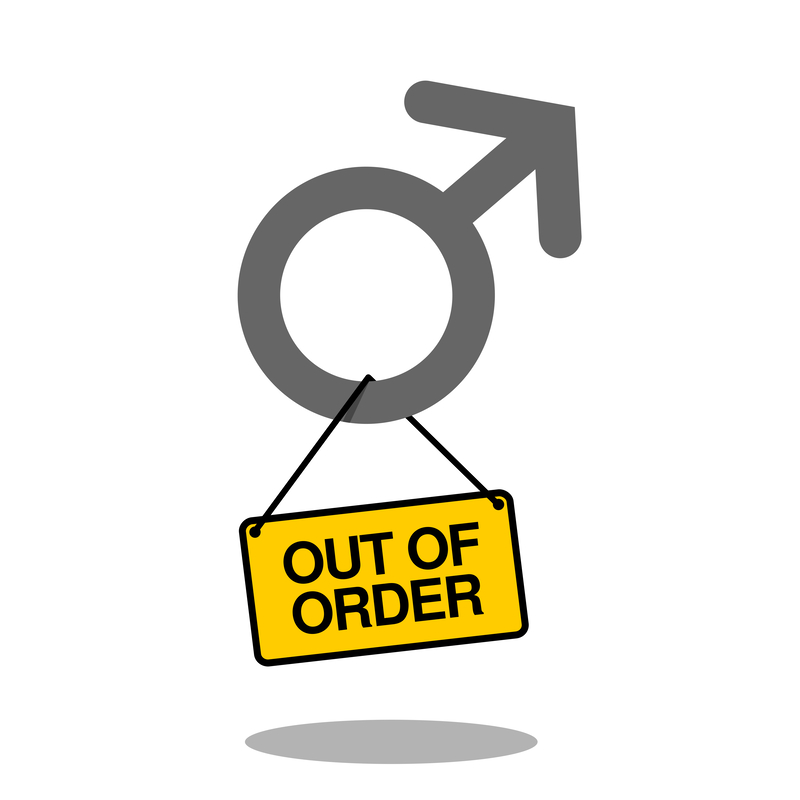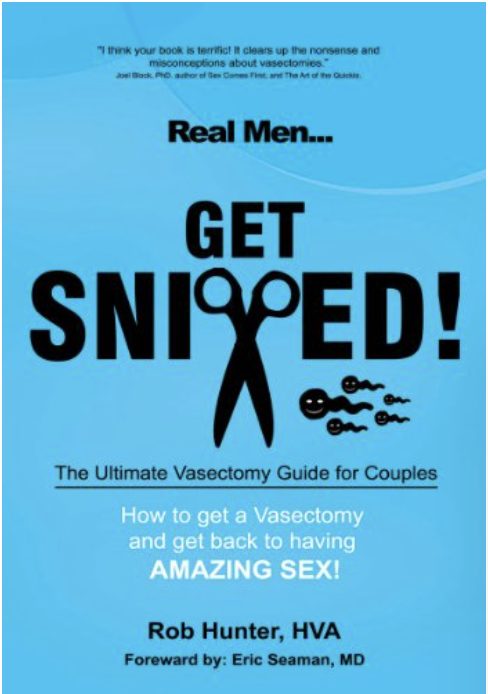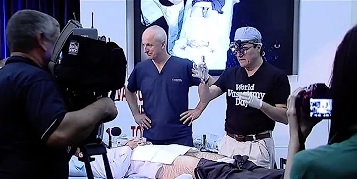Why Men Avoid Vasectomies

For the record, a vasectomy surgery typically has no effect on a man’s sexual desire, ability to get an erection, or produce sperm or ejaculate. Tweet

Highlights
Fear of pain, worry about compromised sexual function, and modesty leave a lot of men sitting on the fence over the vasectomy decision.
A vasectomy typically has no effect on a man’s sexual desire, ability to get an erection, or produce sperm or ejaculate.
In what more precarious position can a man be in than lying on a table, shorts around his ankles, with a urologist holding his balls in one hand?
“A coward turns away, but a brave man’s choice is danger.” — Euripides
Any man who tells you he has faced V-Day without the slightest trepidation is a lying sack of epididymis.
In what more precarious position can a man elect to be than lying on a table, shorts around his ankles, with a urologist holding his balls in one hand and dissecting forceps in the other?
We’ve learned to protect our genitalia since that tender age when we first caught our penis in the teeth of a zipper or took a soccer ball in the nuts. So, expect anxiety. It’s normal. You’re no less of a man before or after the vasectomy.

Doug Stein MD
Tampa urologist Doug Stein, MD, known as the Big Daddy of vasectomies, having performed more than 45,000, says men are hesitant to get snipped for three primary reasons:
- Pain. “Most men worry about pain in a very private area,” he says.
- Fear of losing masculinity or sexual desire. “Some men hear the word ‘sterile’ and think ‘will I become impotent? Will I be less of a man?’ They can’t believe you can make a modification to their genitals and be the same man afterward.”
- Bashfulness. “Modesty plays a role for men, too. Girls give up modesty early when they start having pelvic exams, pap smears, a gynecologist using a speculum. But men are like, ‘nobody’s touching my nuts.’ Men are modest.”
Fear of pain, worry about compromised sexual function, and modesty leave a lot of men sitting on the fence over the vasectomy decision. More than 190 million women worldwide have had tubal ligations—compared to the roughly 45 million men who’ve had vasectomies even though female sterilization is more invasive, costly, and risky.
Echoing Stein, here’s are some reasons we found why men say they won’t get a vasectomy:
- “I’m terrified of surgery, needles, blood, scalpels, you name it.” — James, 32
- “I heard you can lose your sex drive. I’d rather take my chances with a pregnancy than face that the rest of my life.” — Keyshawn, 24
- “Aren’t dry ejaculations not as enjoyable? I don’t want to come and have nothing come out.” —Trevor, 27
- “I’m 21 years old and am dead set on never having kids, but this procedure weighs heavily on my mind; I get scared of the thought of having it.”— Derrick, 21
- “My wife wants me to have a vasectomy because she says she’s “done having kids.” But it’s just so permanent. One-and-I’m-done is a hard concept for me to wrap my brain around.”— David, 37
Doug Stein, MD: “Men are like, ‘nobody’s touching my nuts.’ Men are modest.”
- “I’m worried about losing my ability to get an erection or lose feeling. I know they say that doesn’t happen, but I’d be the ‘lucky’ one in a million.” — Robert, 34
- “I have some PTSD from having had a hydrocele surgery. I have to get over that fear so I can enjoy condom-less sex again.” — Victor, 33
- “I enjoy condoms about as much as I enjoy foot massages with my shoes on. My biggest pre-vasectomy fear was loss of sex drive or function. I was so paranoid that I kept an ejaculation journal for three months leading up to the surgery. I’m happy to report that I’m firing at an even steadier clip now than I was then. I’m feeling large and in charge—like a silverback gorilla.” — William H.
For the record, a vasectomy typically has no effect on a man’s sexual desire, ability to get an erection, or produce sperm or ejaculate.

But back to our point above that vasectomies typically have no impact on your sexual desire, your ability to get an erection, or your ability to produce sperm or ejaculate: After your vasectomy, your doctor will advise you to continue using birth control for a few months, until you do a follow-up test to confirm there really is no more sperm in your semen.
How to Sell Men on Vasectomy
Embarrassment is a tough nut to crack when it comes to men. Our cultural script about masculinity says we need to be tough, brave, strong, and self-reliant—not vulnerable. Researchers think that may be why far fewer men than women see doctors regularly. Studies have shown that many young, healthy men delay visits with their physicians (and are less honest when they get there) to avoid what they view as a feminine characteristic, seeking help.
Sometimes, masculine reticence can have consequences for preventive care. A 2009 study in the American Journal of Men’s Health that explored men’s attitudes toward cancer screenings involving the rectum such as a digital rectal exam (DRE — to check for prostate cancer) or a colonoscopy (for colon cancer), found that some men who resisted the exams did so because of an “aversion to gay sex” or because that part of their bodies is “personal.”
So, it may be easier to sell men on vasectomy by addressing their fear of the pain and dispelling common misconceptions about the procedure itself, say urologists. Modern techniques require neither a needle nor scalpel, and side effects are usually minor (a few days of discomfort from swelling).“It has to do with the openness of various groups,” says Dr. Stein. “Policemen and firefighters are comfortable talking with one another about these things; lawyers tend to be more close-lipped.”
If ease and effectiveness don’t convince a man to get a vasectomy, preventing unwanted pregnancy should, says Stein, who has made bringing affordable vasectomy to as many men as possible his goal in life. (He takes his skills on the road, providing vasectomy services for 32 of Florida’s 67 county health departments.) “There are too many of us—7.8 billion—and we are destroying the planet,” he says. “By preventing a third or fourth pregnancy, you will be doing more to decrease your carbon footprint than you can in a lifetime of recycling!
“About 50 percent of all pregnancies are unintended,” Stein says. “If you could just prevent a quarter or third of those, why not? Isn’t that a noble enough goal?”
In 2013, filmmaker Jonathan Stack followed Dr. Stein throughout Florida, to Haiti, the Philippines and Kenya to make the documentary The Vasectomist, about the issue of overpopulation. Coinciding with the premier of the film, the two men co-founded World Vasectomy Day as a celebration of men who care enough to share the responsibility for family planning.














